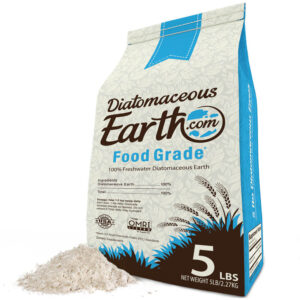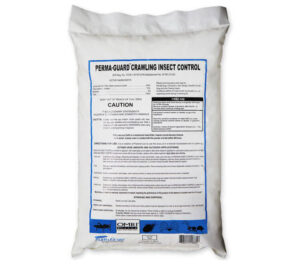If you’re facing a rat problem, you’re likely looking for effective and safe ways to deal with these unwelcome guests. While diatomaceous earth (DE) is a popular natural solution for controlling many pests, you might wonder if it can be used for rats. I’ve explored this question myself, hoping for a non-toxic and straightforward remedy. The truth is, diatomaceous earth is not effective in killing or repelling rats directly. However, it can be a useful part of an integrated pest management strategy when combined with other methods.
Why Diatomaceous Earth Does Not Work on Rats
Diatomaceous earth is highly effective against insects like ants, fleas, and bed bugs because it dehydrates them by cutting through their exoskeletons. Rats, however, are mammals with thick fur and skin, which means DE does not have the same dehydrating effect on them. Here’s why DE doesn’t work against rats:
- No Effect on Mammals: Rats do not have an exoskeleton like insects, so DE cannot cut through their skin to cause dehydration.
- No Repellent Properties: DE doesn’t have any scent, taste, or texture that would repel rats or deter them from an area.
- No Toxic Effect: Unlike chemical rodenticides, DE does not poison rats or affect their health if ingested.
How Diatomaceous Earth Can Play a Supporting Role in Rat Control
While DE doesn’t kill or repel rats directly, it can still be part of a supporting strategy for making your home or property less attractive to rats:
1. Eliminate Insect Food Sources
Rats are omnivorous and will eat just about anything, including insects. If your home has a lot of insects, this can attract rats looking for food. Using DE to eliminate insects can help reduce this food source.
- Apply DE for Insect Control: Sprinkle DE around baseboards, cracks, and crevices, behind appliances, and in other areas where insects are commonly found. By reducing insect populations, you remove an easy food source for rats.
2. Keep the Environment Clean and Dry
Rats prefer environments where they can easily find food, water, and shelter. Diatomaceous earth can help maintain a clean and dry environment by absorbing moisture in areas like basements, attics, and crawl spaces, making these places less attractive to rats.
- Use DE in Damp Areas: Spread DE in areas that tend to be damp or dark, where rats might hide or build nests. While this won’t directly kill or repel rats, it can help create an environment that is less inviting.
3. Barrier Methods for Entry Points
While DE won’t deter rats directly, you can use it as part of a barrier strategy around potential entry points. By sealing these entry points and using DE to kill any insects nearby, you can reduce both rat and insect access.
- Apply DE Around Sealed Areas: After sealing cracks and holes with caulk, steel wool, or expanding foam, apply a light dusting of DE around these areas to prevent insects from entering and attracting rats.
Effective Methods for Controlling Rats
To effectively control rats, you’ll need to combine DE with more targeted rodent control methods:
1. Seal All Entry Points
Rats can squeeze through holes as small as a half-inch. Sealing these entry points is critical:
- Inspect for Gaps and Holes: Check around windows, doors, vents, foundations, and utility pipes.
- Seal with Rodent-Proof Materials: Use materials like steel wool, hardware cloth, caulk, or metal flashing to seal entry points.
2. Use Traps and Baits
Trapping is one of the most effective ways to deal with rats:
- Snap Traps: These traditional traps provide a quick and humane way to kill rats. Place them along walls, in attics, basements, or other areas where you’ve seen activity.
- Live Traps: Humane traps that capture rats without killing them, allowing you to release them far from your home.
- Bait Stations: Enclosed stations with rodenticides that attract rats and allow them to ingest poison. Use these cautiously, especially if you have pets or children.
3. Use Natural Repellents
Certain natural substances can help deter rats without posing risks to pets and humans:
- Peppermint Oil: Rats dislike the strong smell. Soak cotton balls in peppermint oil and place them near entry points, in cupboards, and along walls.
- Ammonia or Vinegar: These strong-smelling liquids can act as repellents when placed in small bowls or sprayed in areas where rats are active.
4. Maintain a Clean Environment
Keeping your home clean and free of food and water sources can significantly reduce the chances of a rat infestation:
- Store Food Properly: Keep all food, including pet food, in airtight containers. Clean up crumbs and spills immediately.
- Manage Waste and Clutter: Rats love cluttered areas where they can hide. Keep storage areas organized and dispose of garbage regularly in sealed bins.
Pros and Cons of Using Diatomaceous Earth in Rat Control
Pros:
- Natural and Non-Toxic: Safe to use around humans and pets when using food-grade DE.
- Controls Insects: Helps eliminate insects that may attract rats.
- Moisture Absorption: Helps maintain dry conditions that are less attractive to rats.
Cons:
- Ineffective Against Rats Directly: Does not kill or repel rats.
- Requires Combination with Other Methods: Must be used alongside more effective rat control strategies.
Conclusion
While diatomaceous earth isn’t a solution for killing or repelling rats directly, it can still play a role in a broader pest management plan. Use DE to control insect populations and maintain a dry, clean environment while combining it with more effective rat control methods like traps, baits, natural repellents, and sealing entry points. With a comprehensive approach, you can successfully tackle a rat problem and keep them out of your home for good.


